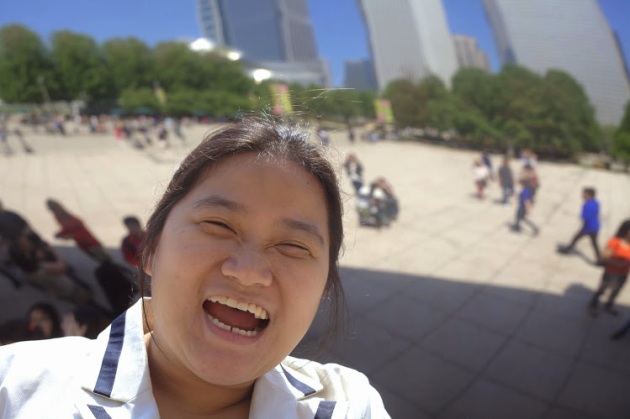After much deliberation about disclosing my disability on my online attorney profile, I decided to go full monty and disclose a full picture. Perhaps it makes sense for me to disclose my disability, since I am starting a disability law practice. But I am still nervous that some potential clients would be hesitant to hire me because of my disability.
When I was about to graduate law school, I had a conversation about disclosing my disability with my Employment Discrimination Law Professor. She encouraged me to disclose my disability, saying that employers would eventually find out that I have a disability and that I shouldn’t waste my time with the ones that discriminate. She added that I would find the right office that would accept me and my disability. After about six years of agonizing job applications, I have come to realize that no such office exists. But I am hopeful that my potential clients will be different.
Here’s my blurb for my up and coming website for my law practice:
My name is Esther S. Lee. I am an attorney with a disability. My Cerebral Palsy affects my speech and mobility, but not my spirit. I received honors distinctions from the University of Illinois Urbana-Champaign with a B.A. in English and Rhetoric. I graduated from the University of California Davis, School of Law, with a focus on civil rights and public interest law. In addition to being an attorney, I am starting a non-profit housing cooperative for people with and without disabilities, called Able Community. My extensive background advancing the rights of people with disabilities includes legal work at multiple disability rights organizations and disability policy work at the White House. I am committed to empowering people with disabilities and underrepresented communities, advancing their rights and quality of life through legal advocacy.
Our office is an affordable, socially conscious law practice advocating for people with disabilities and their families’ every day legal needs. The practice focuses on Social Security, Special Education, housing, disability, and administrative law; as well as advancing the Civil Rights of all people in Illinois and California.
Experience:
- Successfully fought apartment management companies and university housing to modify units for increased ADA accessibility.
- Successfully initiated Social Security applications and assisted with appearances.
- Successfully resolved fence encroachment matters between neighbors.
- Successfully reduced and appealed Cook County property tax assessments.
- Successfully negotiated medical bills in a medical negligence case.
- Successfully completed mediations, administrative reviews, administrative fair hearings, 4731 complaints for Regional Center disabilities services in California.
- Successfully completed mediations and administrative review process for Department of Rehabilitation services.
Pro Bono Experience:
- White House: Engaged in disability policy and outreach to the disability community.
- Legal Assistance Foundation’s Special Education Pro Bono Panel: Trained to provide legal representation and advocacy in Special Education matters.
- Access Living—Civil Rights Team (Chicago’s Independent Living Center): Advanced disability rights in housing and community integration litigation.
- Disability Rights California’s Office of Clients’ Rights Advocates: Advocated for clients with developmental disabilities in Special Education, employment discrimination, and wrote a letter to stop harassing a client who was manipulated into purchasing an expensive household item he did not need.
- Aids Legal Council of Chicago: Advocated for adults and children with disabilities in Social Security Disability Insurance and Social Security Income appeals before the Social Security Administration and Federal Court.
- Legal Services of Northern California: Provided legal advice to low-income and elderly clients on topics including landlord-tenant issues, housing, and professional licensing.
- Coordinated Advice and Referral Program for Legal Services (CARPLS): Assisted clients in creditor, housing, and family law self-help matters on a legal assistance hotline.
- Civil Rights Clinic: Represented a former prisoner in a medical negligence (personal injury) case against prison personnel.
- Homeless Action Center: Worked on Social Security applications and appeals for homeless and low income individuals.
Any feedback on this bio or thoughts on disclosing one’s disability on one’s profile?




